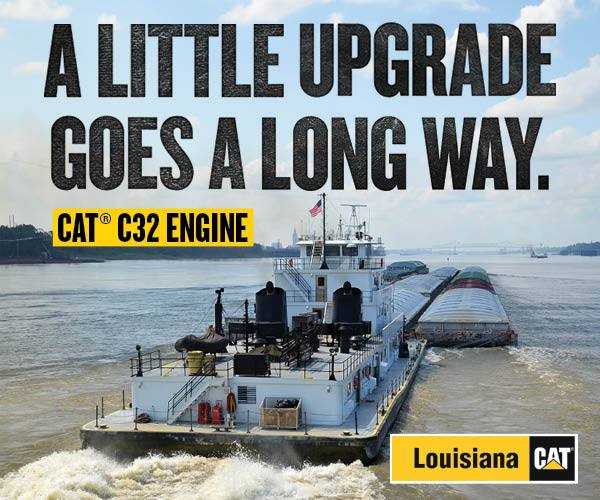Firefighting Rule Is Partial Win For Towboaters
The Coast Guard published its final firefighting rule for towboaters in the October 3 Federal Register. As the culmination of a long tug of war between the Coast Guard and the towing industry over what is and isn’t appropriate firefighting training for towboaters, it represents a partial win for our industry.
The conversation over firefighting rules for towboaters goes back decades. The Coast Guard had been sending mixed signals. It issued several explicit statements in the early 2000s admitting that the international Standards of Training, Certification and Watchkeeping (STCW) for firefighting training were developed for blue-water mariners in a blue-water context and were never meant to apply to brown-water vessels, yet proposals for just such requirements and rules for towboaters somehow kept cropping up.
In forums like the Towing Safety Advisory Committee, industry leaders explained that inland towing companies already provided firefighting training to their crews. They presented figures showing that inland crews successfully fought most fires. They convincingly showed that some equipment that made sense aboard ocean-going vessels whose crews may have to fight fires hundreds or thousands of miles from assistance or shore wasn’t necessary aboard vessels that operated no more than a few hundred feet from shore. Some industry figures argued that a letter from a company certifying that an employee had the required amount of training should be enough, rather than a formal course that imposes burdensome costs on crewmembers and/or companies (many of which pay for such training and associated travel costs). Everyone agrees, after all, on a sufficient level of training—appropriate to inland conditions.
The final rule notice notes that it doesn’t require towboaters to train in equipment relevant only to blue-water firefighting. A spokesperson for the American Waterways Operators said, “While the Coast Guard didn’t go as far as we advocated for in providing flexibility to mariners and operators while upholding safety, we welcome the Coast Guard’s understanding that the current training course requirements are overly burdensome. We’ll now work with our members to ensure Coast Guard approvals of operator and training provider courses occur in a timely manner so mariners have wide access to the modified basic firefighting course beginning in April 2024.”
The Coast Guard is delaying the effective date of this rule until April 1, 2024, to allow time for training providers to develop a modified basic firefighting course and for the Coast Guard to evaluate and approve the course.



